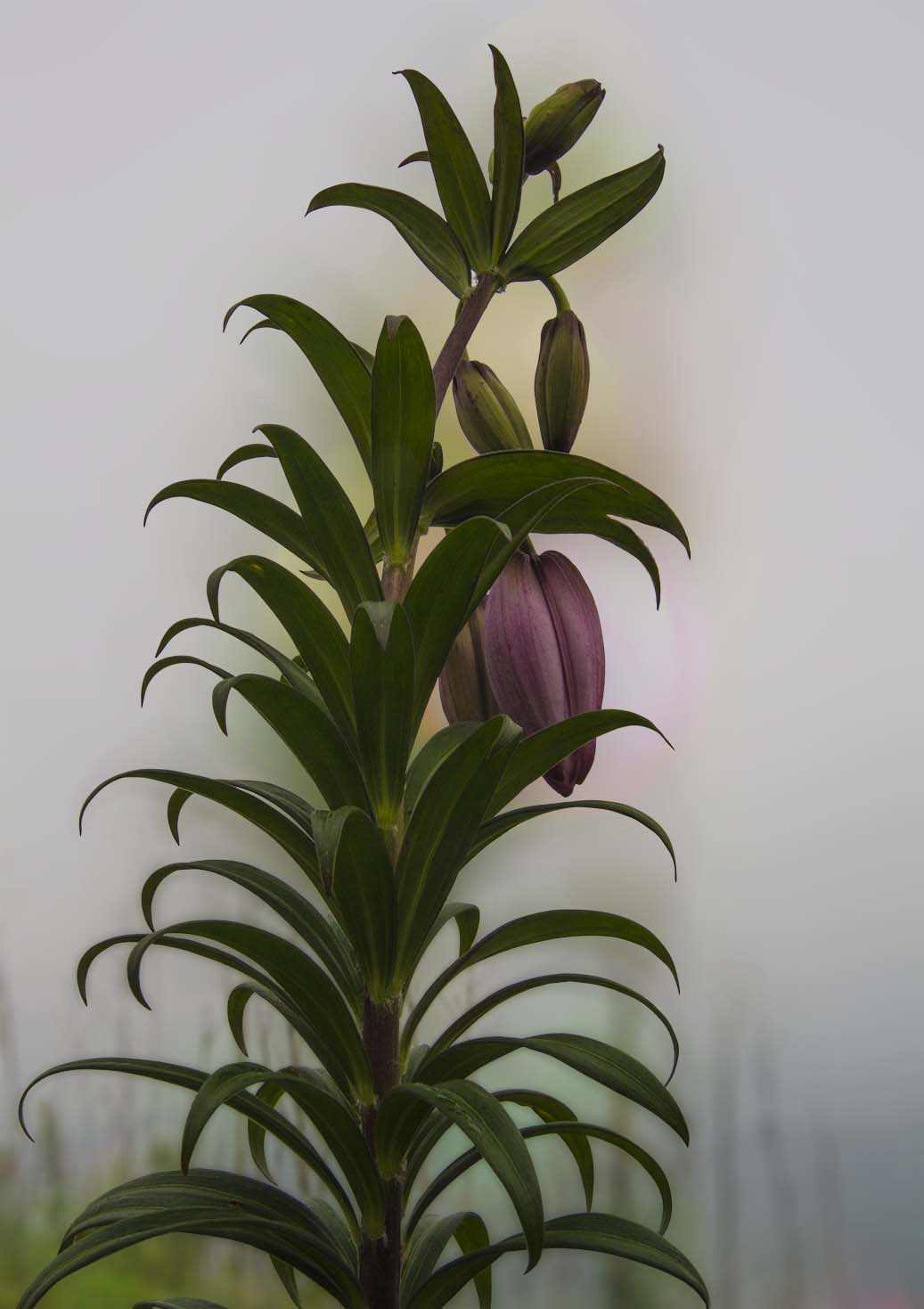An article I wrote 2002 after a trek to Shirui peak for a travel magazine. They say the difference between human and the rest of the animal world is the consciousness of time and space, and therefore the realization how limited life is. It is ironic that it is this consciousness of limitedness and fragility of life which has given birth to the best of literature and philosophy.
Prince Andrie Bolkonsky’s near death experience in the Battle for Bratzen Heights in Austria, in Leo Tolstoy’s classic, “War and Peace,” came to mind during an excursion to the Shirui peak in Ukhrul district, Manipur, one fine November day. It is amazing how images from literature can return so recurrently to enhance and enrich experiences in real life. Shirui, about 8000 ft above mean sea level, is a popular trek, especially during spring when a colourful, wild, land lily known as Shirui Lily (Lilium Maclinae Sealy) cover the hill sides. Normally people drive to Shirui village about 5000 ft above msl, and do the trek to the peak and return to base at Shirui villlage in a day. The more adventurous take their camping gears and spend the night on the windy, plateau-ed ridge of the mountain. The climb is steep up to the ridge. One can either drive to Shirui village from Imphal, a distance of about 115 km or else make a night halt at Ukhrul town, 83 km from imphal, and do the rest of the driving to Shirui village the next morning.
I got myself to take courage to buy and read Tolstoy’s voluminous novel, years ago during a longish break between my many job hops in the younger days of my journalistic career. Prince Andrie was fighting with the Russian Army coming in aid of Austria when Napoleon Bonaparte invaded the country in his push eastwards to dominate the entire Europe. At the end of the disastrous first battle, there was Prince Andrie amongst the dead and wounded soldiers on the plains of Bratzen Heights. He was on his back, wounded and bleeding profusely, holding on to the Russian flag of which only the flag staff remained as a French soldier had removed the flag as a war trophy, life slowly but surely oozing out of him. Above him was the infinite sky, and he was staring at it wondering at its immensity and depthless ness. On the one hand was the mystic experience of death which he knew was approaching, and on the other was the sky – the blue infinity above him. It was a transcendental, epiphanic experience, and in a strange way he was overwhelmed by its beauty. He was not afraid of death, but at that moment he wanted to live, precisely because he wanted to relish more of the beauty of it all.
Then appeared Napoleon on his white stallion, inspecting the scene of battle, magnanimous in victory, generous to enemy wounded… Prince Andrie, was always secretly an admirer of the conqueror, like many other romantics of Europe of his age, seeing Napoleon as the epochal harbinger of the wind of change, dismantling the feudal order, ushering in “liberty, equality and fraternity”. Many are later to be disillusioned by Napoleon, and Prince Andrie was among these, but for a very different reason.
In the midst of the mystical experience he was going through, there was the figure of his hero, pitted against the infinite blue of the sky, and at that moment, even this awesome conqueror appeared so little and insignificant. It was not a question of his esteem for the great military commander sinking, but the greatness and beauty of the universe overshadowing the conqueror and his ambitions, rendering them trivial and vain. It was the dawning of a new religiosity. Prince Andrie’s life was never to be the same again.
It is hardly a comparison really, my own experience on Shirui mountain and Prince Andrei’s on the Austrian plains of Bratzen Heights, the only confluence perhaps being in the acknowledgement of the humbling effect of nature on those who come to face it and appreciate its mystery and beauty. It is true I too was on the verge of death, panting and sputtering like an overworked, rickety Shaktiman truck, not just exhausted but also wondering how I managed to keep breathing without my lungs bursting.
And then there was the sky, immense and awesome in its expanse, and as mysterious as any mystery can be. The cool mountain breeze brushing against my flaming, red hot cheeks, sometimes in whispering gusts and sometimes howling with potential violence; and when the breeze was not there, there was the silence as only the mountains know – so silent that I could actually hear the cool, murmuring brooks in the distant valley below, or the echoed calls of birds floating in the crisp cold air from distant mountain ranges, the callers too far away to be seen.
I laid on my back and faced the azure sky, not just to rest my fatigued limbs, but to contemplate the silence and timelessness. It was then that I remembered Prince Andrie. Climbing mountains, or any other close encounters with nature, always makes the climber climb down. I did not see the famous Shirui Lily, as it was not the season, but I was not altogether disappointed. There were so many other things besides the lily – the sense of eternity in the silence for instance.
I returned from Shirui, with another resolve. Nocturnal routine of my profession notwithstanding, I vowed to myself I would burn 15 kg adipose from my 96 kg bulk so that I can return during a Spring for another rendezvous with the flowers in the wilderness.










